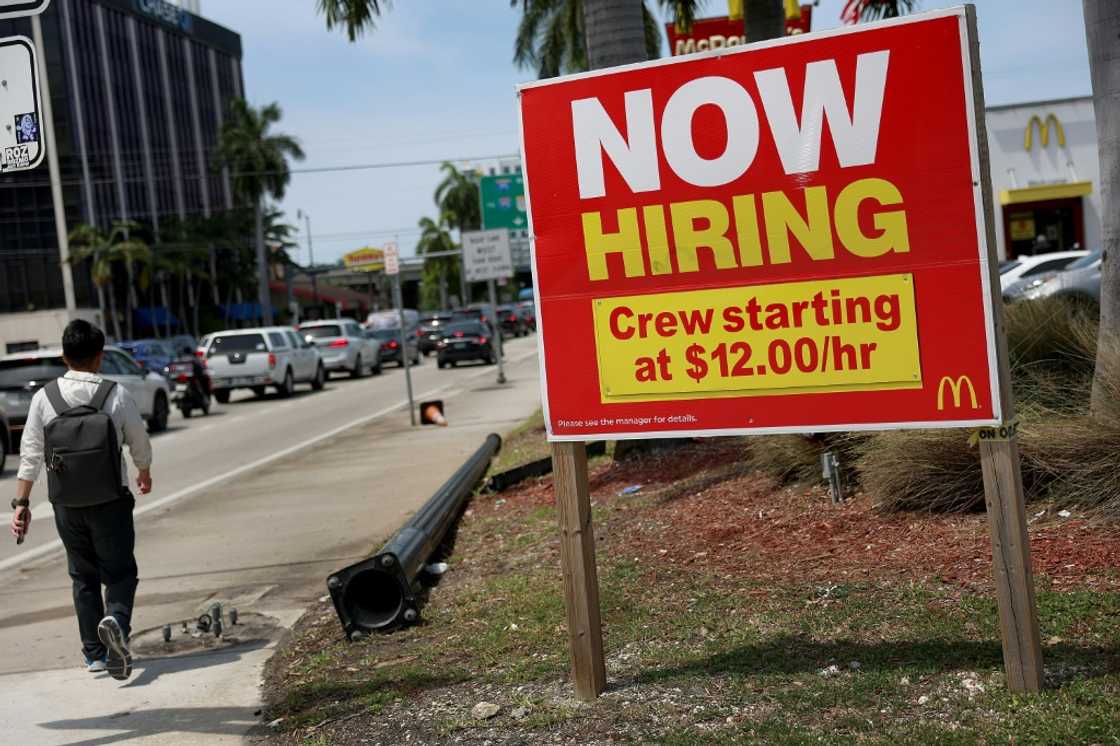Private sector hiring in US cools more than expected: ADP

Source: AFP
Job gains in the US private sector slowed again in May on a slump in manufacturing, payroll firm ADP said Wednesday, in a further sign the world's largest economy could be cooling.
Employers added 152,000 jobs last month, down from a revised 188,000 figure in April and less than analysts anticipated, the report said.
This was due to a steep decline in manufacturing, added ADP, noting that leisure and hospitality also showed softer job growth.
"The labor market is solid, but we're monitoring notable pockets of weakness tied to both producers and consumers," ADP chief economist Nela Richardson said in a statement.
She added that both job and pay growth are slowing, entering the second half of the year.
A cooler labor market could give the US central bank more confidence to pivot to interest rate cuts soon, a move likely to give the American economy a boost.
For now, the Federal Reserve has held rates at the highest level in more than two decades, aiming to ease demand and stamp out inflation with higher borrowing costs.
In May, manufacturing jobs declined by 20,000 while those in leisure and hospitality picked up by 12,000, said ADP.
Most job gains were in service-providing segments, with larger increases seen in areas like trade, transport and utilities, as well as in education and health services.
Salary gains for those who changed jobs also slipped for a second month, to 7.8 percent.
Pay growth for staff who remained in their roles held steady for a third month at 5.0 percent, the report said.
Slower growth
"We expect the labor market to loosen going forward," said Rubeela Farooqi, chief US economist at High Frequency Economics.
"But we expect job growth to remain positive and see the unemployment rate remaining low, which should be supportive of economic activity this year," she added in a note.
Markets will also be closely eying a government jobs report due Friday, for its bearing on Fed policy.
Job growth is likely to ease more in the summer months, given an "ongoing decline in measures of vacancies and the steep drop in hiring intentions in business surveys," said Ian Shepherdson, chief economist of Pantheon Macroeconomics.
There has also been a "deterioration in leading indicators of layoffs," he said.
PAY ATTENTION: Stay informed and follow us on Google News!
Source: AFP



